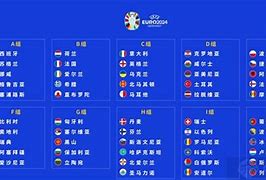TheDurationoftheUEFAEuropeanChampionshipFinal:AComprehensiveAnalysis
The UEFA European Championship, often referred to as the Euros, is one of the most prestigious tournaments in international football. The final match of this competition is the pinnacle of the event, where the two best teams in Europe face off to determine the champion. Understanding the duration of the final is crucial for fans, broadcasters, and organizers alike. This article delves into the various aspects that contribute to the length of the European Championship final, providing a comprehensive analysis of the factors involved.
1. Regulation Time
The standard duration of a football match, including the final of the Euros, is 90 minutes, divided into two halves of 45 minutes each. This regulation time is the primary component of the match's duration and is governed by the Laws of the Game as set by the International Football Association Board (IFAB). The clock does not stop during these 90 minutes, except in extreme circumstances, which are rare in a final match.
2. Stoppage Time
At the end of each half, the referee adds stoppage time to compensate for any delays that occurred during the game. These delays can include injuries, substitutions, timewasting, and other stoppages. The amount of stoppage time is at the discretion of the referee and is typically announced at the end of the 45minute mark for each half. On average, stoppage time can range from one to several minutes, depending on the number of interruptions.
3. Extra Time
If the score is tied at the end of regulation time, the final proceeds to extra time. This is a period of two additional halves, each lasting 15 minutes, with a brief break in between. The purpose of extra time is to provide a resolution to the match without resorting to a penalty shootout. The rules for stoppage time apply here as well, with the referee adding time at the end of each 15minute segment.
4. Penalty Shootout
If the score remains tied after extra time, a penalty shootout determines the winner. Each team takes turns attempting five penalty kicks, with the team scoring the most goals declared the winner. If the score is still tied after five kicks each, the shootout continues in a suddendeath format. The penalty shootout itself does not take long, typically lasting around 1015 minutes, but the tension and drama it adds can feel like an eternity for players and fans.
5. PreMatch and PostMatch Activities
The actual playing time is only part of the overall duration of the final. Prematch activities, such as the national anthems, player introductions, and ceremonial kickoffs, can add significant time before the match officially starts. Postmatch activities, including the awarding of medals and the trophy presentation, also contribute to the total duration. These activities can add anywhere from 30 minutes to an hour to the overall event time.
6. Broadcasting and Commercials

For television viewers, the duration of the final broadcast includes commercial breaks and pre and postmatch analysis. Broadcasters often start their coverage well before the match begins and continue after it ends, providing expert commentary, player interviews, and other features. These elements can significantly extend the perceived duration of the final for the audience at home.
7. Factors Affecting Duration
Several factors can influence the duration of the final match. These include the number of goals scored, which can lead to celebrations and delays; the frequency of substitutions and injuries; and the pace of the game, which can be affected by the strategies employed by the teams. Weather conditions and the quality of the pitch can also play a role in the match's flow and, consequently, its duration.
8. Historical Trends
Analyzing historical data from past European Championship finals can provide insights into typical durations. For instance, matches that go into extra time or penalty shootouts naturally last longer than those decided in regulation time. Trends in recent tournaments can also indicate changes in the average duration due to rule changes or other factors.
9. Impact on Stakeholders
Understanding the duration of the final is crucial for various stakeholders. Fans need to plan their schedules accordingly, while broadcasters must manage their programming and advertising slots. Organizers must ensure that the stadium and security personnel are prepared for the extended duration in case of extra time or a penalty shootout.
10. Conclusion
The duration of the UEFA European Championship final is a complex interplay of regulation time, stoppage time, extra time, and penalty shootouts, along with pre and postmatch activities. While the standard 90minute regulation time is predictable, the additional elements can vary widely, making each final unique in its duration. As football continues to evolve, so too will the factors that influence the length of these crucial matches, making it a topic of ongoing interest and analysis.
This comprehensive analysis highlights the multifaceted nature of the European Championship final's duration, offering a deeper understanding of what it takes to crown the champion of European football.









